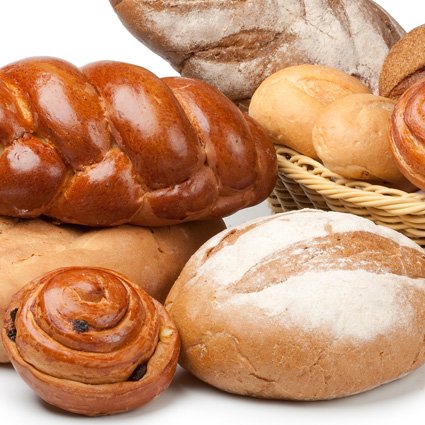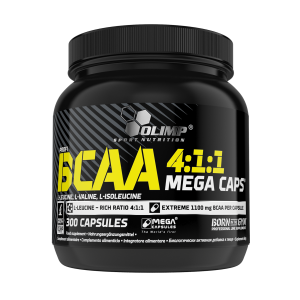The body's demand for carbohydrates

CARBOHYDRATES
Physical endurance of an athlete depends primarily on the size of energy resources accumulated in the body. In the period of frequent and lengthy training sessions, attention should be paid to ensuring that the dietary components serving as energy source are rapidly digested by the body, absorbed and burned, and that their surplus is effectively stored in the form of readily available reserves. Of all the energy nutrients supplied in the diet, it is only carbohydrates that meet the above criteria, therefore their presence in the diet of a sportsperson is particularly important.
The human body has the ability to store sugar as glycogen (combined glucose molecules). This compound is synthesised by many tissues, but significant amounts of this polysaccharide are accumulated in the liver and in muscles only.
The content of hepatic glycogen in the human body is variable and ranges between 60 g and 150 g. The lowest values are observed in the fasting state or following a period of starvation, while after a meal consisting of carbohydrates, its resources increase in the liver. The glycogen content in muscles is in the range of 1-1.5% of wet tissue, which in the case of a body of an average person is about 200-300 g. The stores of this compound in muscles and in the liver vary, and in the athlete's body, with appropriate training and nutrition, they may rise to 3% of muscle mass and achieve the value of over 500 g. Since muscle glycogen is the only source of energy for myocytes, the size of its resources is particularly important in prolonged or intensive physical exercises. During the workout, carbohydrate stores in muscles are reduced, which leads to a decrease in work efficiency. Before proceeding to the next training session, an athlete should replenish the deficient muscle glycogen, the complete re-synthesis of which occurs after as many as 48 hours sometimes.
During the biological renewal of the body, when complying with certain principles of nutrition, you can achieve the carbohydrate reserve levels higher than before training. This is called the supercompensation phenomenon. With proper nutritional regeneration, an athlete may proceed to the next workout equipped in an increased pool of muscle glycogen, which undoubtedly will increase its efficiency.
Maintaining an adequate supply of muscle glycogen is of special importance for athletes performing prolonged endurance exercises (marathon runners, cyclists, cross-country skiers), as carbohydrates are necessary for the proper burning of fatty acids being the primary source of energy in these sports disciplines.
The physical capacity of athletes practicing strength and high-speed sports is also dependent on the amount of accumulated carbohydrate reserves. In short and intense exercises, when significant hypoxia is an issue, the main energy material enabling the work of muscle cells are sugars. Along the course of exercise, their resources are reduced, which inevitably affects the efficiency of training. Thus, maintaining a pool of muscle glycogen is of paramount importance for virtually all athletes, regardless of the sports discipline.
Since the process of glycogen synthesis takes place most intensively in the first hours after exercising, it is important to ensure that the post-workout meal contains a sufficient amount of proper-quality carbohydrates. The effectiveness of muscle glycogen recovery after exercise depends on the quantity and quality of consumed carbohydrates and their rate of digestion and absorption by the body. Within an hour after the workout completion, you should eat about 60 – 80 g of easily digestible carbohydrates in a liquid form, preferably in the form of CARBO drink.
To slow down the loss of muscle glycogen before and during exercise, it is beneficial to provide isotonic drinks containing carbohydrates.
After a completed workout, it is important to ensure a quick glycogen restoration not only in muscles but also in the liver. During prolonged, exhaustive, exercises (particularly strength ones), hepatocytes free themselves of sugar reserves, while lipid compounds replace them, which may contribute to the development of fatty liver and slow down the glycogen recovery. This is why in the post-workout period it is recommended to consume lipotrophic (dissolving fat) compounds, the best source of which is LECITHIN.
If, after the training, a feeling of reduced appetite is experienced, combined carbohydrate-protein supplements may be taken.
BACK ›

